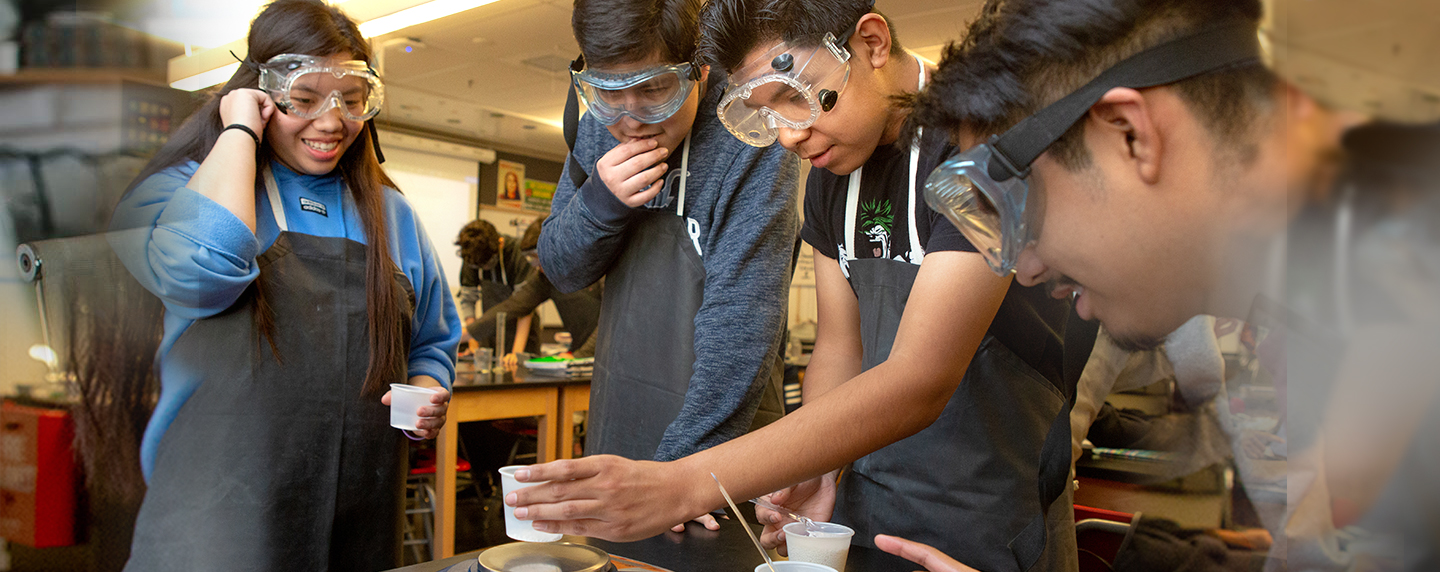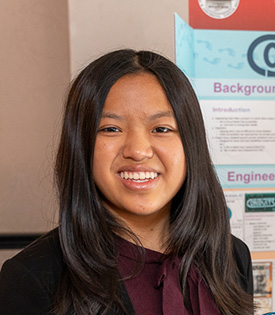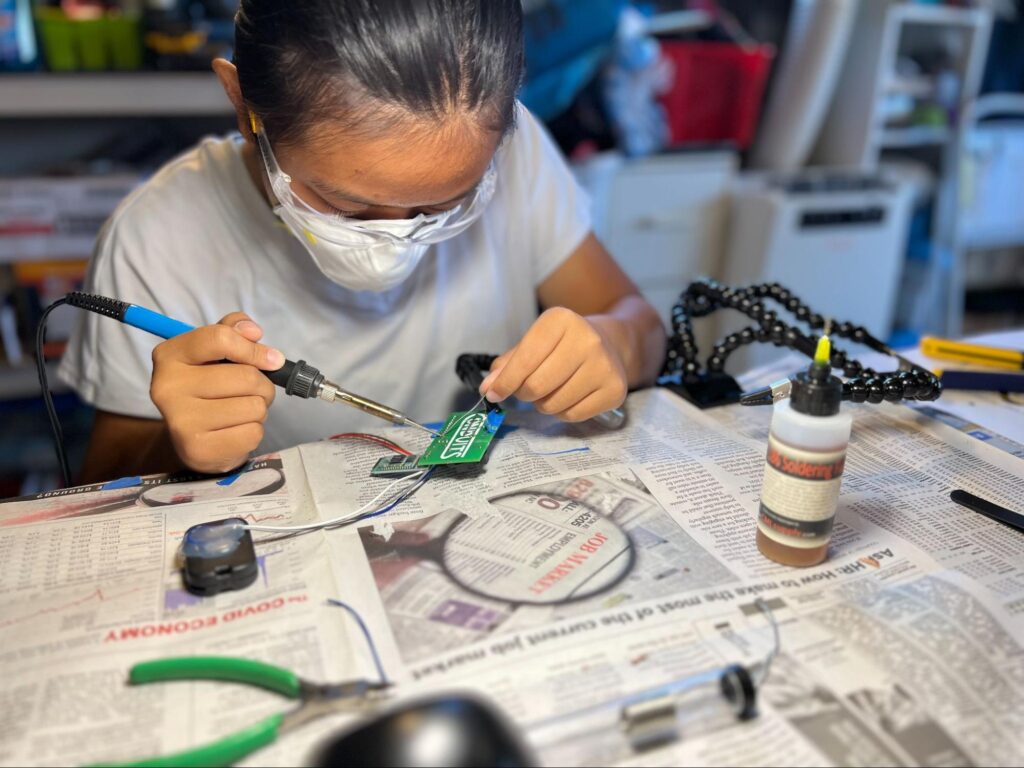
Stories of Impact
Back to In Action / Jeanelle Dao, Student
Jeanelle Dao
Eighth grader, Stratford Middle School, San Jose, CA
When Jeanelle learned about her grandfather’s struggle with opening doors due to arthritis, she set out to find a solution. For her seventh-grade science fair, Jeanelle invented CONDUITS – a wireless mat that unlocks a deadbolt in response to a specific set of foot taps.
“So basically people with hand disabilities don’t need to worry about the pain caused by using a key, because there is no key,” she says. Jeanelle built endless custom circuit boards before she landed on CONDUITS (Controlling Doors Using Interface Technology with Steps).
Her innovative idea brought her to Society for Science’s Broadcom MASTERS (now known as Thermo Fisher Scientific Junior Innovators Challenge), the country’s premier middle-school STEM competition.
Jeanelle’s passion for invention and her drive to make positive change in the world earned her the 2022 Lemelson Award for Invention, which recognizes competition finalists working on a promising solution to real-world problems.

Jeanelle went through many circuit board iterations before landing on her CONDUITS doormat. She hopes it will improve accessibility for the disabled population
From a young age I was always curious about how things worked and how they were made…I was always trying to figure out the magic that made things tick.
What started you down the path of STEM and invention? And what were some of the ideas or people who helped shape your interest in this topic?
We had something called the STEAM Lab at our elementary school. They had green screens, iPads, and lots of random materials. Our teacher, Ms. Talley, would give us challenges, and we could use any of these things to try to solve it. This was a really good opportunity to just create with no boundaries. And it was really fun. From a young age I was always curious about how things worked and how they were made. So whether it was building models out of Legos or just taking things apart, I was always trying to figure out the magic that made things tick.
What is your invention, and how does it work?
My project is called CONDUITS (Controlling Doors Using Interface Technology with Steps). Currently three to six percent of people have carpal tunnel [syndrome] while some 12 percent have osteoarthritis. Both of those are hand disabilities that make it painful to use the joints that you need to turn a key to unlock your front door. I think our world should be a lot more accessible than that. So my project aims to help the disabled population make their houses accessible to them. It’s a wireless mat that you would place in front of your front door, and you would step on it in a rhythmic pattern to unlock and lock the deadbolt. So people with hand disabilities don’t need to worry about the pain caused by using a key because there is no key. Something as simple as tapping your foot to the beat of a song could be the password to unlock your front door.
What’s your vision of an inventor?
Some people might think of inventors as these mad scientists that sit at a table welding together pieces of metal. But I see them as being passionate about what they’re doing. I don’t see an inventor as a specific type of person, but more like a mindset of perseverance and passion.

I think I have that mindset, especially when it’s something that I can relate to. And I think some people would describe me as a little mad for wanting to sit in a garage for hours at a time, trying to figure out one piece of wiring.
What difference do you hope to make in the world?
I want to create something that helps people and changes their lives. But more than that, I want to pass on my drive for innovation because the only way for our society to positively move forward is if we let kids do the things they’re passionate about and let them find solutions to the problems that they see in our society that we might not see ourselves.
What does a great teacher or mentor mean to you?
To me a great teacher or mentor is someone who encourages you to figure things out on your own. They won’t just tell you the answer — because you don’t learn that way. We can’t have kids find creative solutions to problems if we keep telling them how it should be done. I think it’s a lot more useful to kids if they figure out the process rather than the answer.
To me a great teacher or mentor is someone who encourages you to figure things out on your own. They won’t just tell you the answer — because you don’t learn that way.
What do you say to young people who aspire to be an inventor?
I would tell them to start small. When you invent something, you learn something with that. And those lessons that you learn can make your next invention better. The project that I made is not the first thing that I’ve made, and nothing worked the first time. So don’t feel pressured to make your thing work the first time. A lot of times the failures that you make now prevent a failure later on, and failures teach you things.
